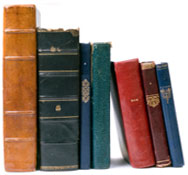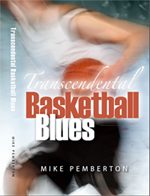Nonfiction
Newspaper Articles
Fifty years since the first moon shot: Has anything changed?
Brown Shoes, Blue Suit: A Generational Divide
Looking for a Low-Stress Career? Be a Punter
Lovie, the Illini and gold days
You say you want a revolution? Be nice
In Italy, it's about embracing the moment
Truth be told, U.S. has always been divided
Hypersensitive to hypersensitivity
Give me liberty, or give me ... some free stuff?
Steak and jazz, hold the politics
Newspaper, coffee and the way of the world in a hotel lobby
Getting to the root of rankism
Free to roam, with or without money in your shoe
Nothing fishy about this story
A conversation and an option not yet explored
A love-hate relationship with France
Tiger Woods: Transcendence lost
Small town drama … ‘It’ll be great’
'One Riot, One Ranger': Mob mentality and social media
Monuments to self are nothing new
Morning paper: Digesting news minus distractions
Cubs fan sees red when it comes to Cardinals
Examining the definition of a hero
'The Biggest Loser': Exploitation or enlightenment?
A high-stakes game of 'our house/my room' poker
At least the Cubs are swingin' the bat
Neither time nor miles can break brothers' special bond
Was the Greatest Generation 'beat'? - Part 1, Part 2
Blago, reality TV and the need to be 'Somebody'
The macroeconomic theory known as the 'Cub Effect'
Content to be empty nesters at this stage in life
Once a parent, always a parent
Was the Greatest Generation Beat?
Presented at ACA/PCA Conference in San Antonio, TX
My mother and father passed away within a few years of each other during the cold, short days of January. While I think of my folks almost daily, it is not at the anniversary of their deaths that I feel their presence most strongly. It is in the spring, when breezes are warm and days long, but the shadows cast by Memorial Day and D-day loom. My folks were part of what Tom Brokaw hailed as the "Greatest Generation" and I have no quarrel with such a label. Yet I believe an additional description, one revealing the soul of the generation, should also be considered.
For me, the "Greatest Generation" was also "Beat."
The Beats are most famously associated with Jack Kerouac and his circa 1950's novel "On the Road." The general perception of them is as precursors to the hippies of the 60's, a hard drinking, dope smoking, jazz loving, sexually open group of Greenwich Village confidants enmeshed in a bohemian lifestyle. That, however, is only part of the story. Being "beat" was not limited to lifestyle, but to an attitude about life. Read More (PDF)
Blurred Borders: Creative Writers and Globalization
Critical Preface
Introduction
My thesis seeks to explore the influence of institutions, economic globalization, and the blurring of borders - both physical and intellectual - upon individuals, families and communities impacted by these forces. Economic globalization is a major factor in the homogenization of cultures, creating politically divergent market based bedfellows like the United States and China . Similarly global literature is blurring the borders regarding the influence of nationality, ethnicity, and cultural background on the creative process. Which is the chicken and which is the egg is not necessarily the point for creative writers. But recognition of the impact of economic and literary globalization is something which needs to be part of the conversation.
Keeping in mind the interweaving of economic and literary globalization we will note the connection of themes in my fiction portion of this thesis with two novels written by others and nonfiction works touting the pros and cons of multinational corporations and globalization. We will examine how institutions, particularly the modern corporation, came to be and how the corporation has impacted life across the world including the writing of fiction. From there we will trace how the term "globalization" became connected to literary studies and look at the aforementioned novels. These works, The Nubian Prince by Juan Bonilla and The Fountain at the Center of the World by Robert Newman, focus on shared concerns like the gap between the economic have and have nots, the isolation of the individual within a decaying society, and the homogenization of culture that appear to be results of globalization. They also raise the question of writing across national/ethnic/religious/pick the demographic and whether this is even an issue under the umbrella of a globalized narrative. Thus, in its very structure, this thesis serves as an example of the mingling of economic and literary globalization and the recognition that the twain not only have met, but will not be broken.
Read More (PDF)


